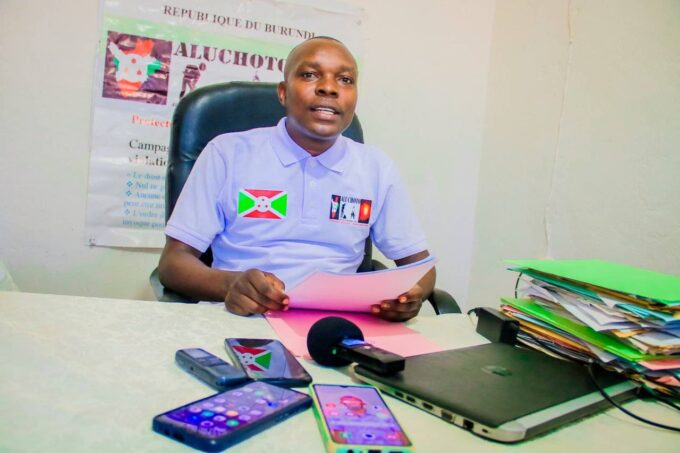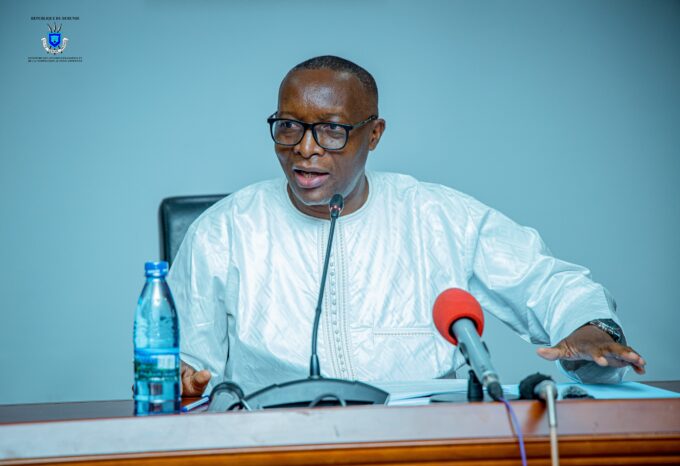The government of Burundi on Friday announced the establishment of a new regulatory body to oversee rental housing and curb exploitative rent hikes as the country grapples with an unprecedented surge in rent prices.
During a public conference in Rumonge Province, Government Spokesperson and State Secretary General Jérôme Niyonzima revealed that the Agency for the Regulation and Control of Real Estate Transactions (ARCTI) had been approved during a recent cabinet meeting. The agency will be tasked with regulating the rental market and setting fair housing policies. However, Niyonzima urged landlords and tenants to formalize rental agreements before the body is officially implemented.
The announcement comes amid growing concerns over skyrocketing rent prices, particularly in Burundi’s economic capital, Bujumbura, and other key cities. According to multiple reports, the issue has been exacerbated by a recent influx of asylum seekers from the Democratic Republic of Congo (DRC), intensifying housing demand and driving prices to record levels.
Many Burundians blame Congolese refugees and migrants—who often pay rent in U.S. dollars—for distorting the housing market. Local tenants claim landlords prefer foreign tenants willing to pay significantly higher rents, leading to evictions and unaffordable prices.
However, landlords argue that the crisis is linked to broader economic issues, such as currency devaluation and rising living costs, rather than an influx of foreign renters.
“We are not raising rent just for profit,” a landlord explained. “The cost of living has increased for everyone, including landlords. The devaluation of the Burundian franc has made it necessary to adjust rent prices accordingly.”
Public frustration over the housing crisis has sparked backlash against the Ministry in charge of housing, with critics accusing authorities of failing to prevent price gouging. In response, Niyonzima issued a stern warning to landlords who exploit the crisis for financial gain.
“This is a serious issue. Some landlords change rent prices from one day to the next,” he said. “People should not take advantage of others unfairly, as what affects one today could affect another tomorrow.”
The government also urges tenants and landlords to officially register rental agreements to prevent future disputes. “Contracts should be notarized so that they hold legal weight,” Niyonzima added.
However, he clarified that the new agency will not impose fixed rent prices, as costs will continue to be determined by factors such as location and housing conditions.
Meanwhile, Burundi’s Revenue Authority (OBR) has launched a tax crackdown on rental properties, with spokesperson Stany Ngendakumana announcing a campaign to enforce taxation on rental income.
Taxes on rental properties are currently being collected, with the deadline set for Monday,” Ngendakumana announced, urging landlords to formalize rental agreements with their tenants. He warned that those failing to declare rental income would face penalties.
“When landlords rely on verbal agreements instead of formal contracts, it often leads to tax evasion,” he cautioned. “Some attempt to conceal their earnings to avoid paying taxes, making it difficult for authorities to monitor the situation”
To combat corruption and price manipulation, President Evariste Ndayishimiye has recently encouraged citizens to report unethical practices, including rent speculation and tax fraud.
“Anyone who reports individuals violating national wealth protection laws—such as price hikes, corruption, or smuggling—will receive 10% of the fine imposed on the offender,” the presidency said earlier this year.
While the ARCTI’s official launch date remains unclear, the government insists that new measures will provide relief to struggling tenants. With the economic instability and growing housing demand in the country, it remains to be seen whether the new agency will effectively control rent inflation or if deeper structural reforms will be required.








Leave a comment